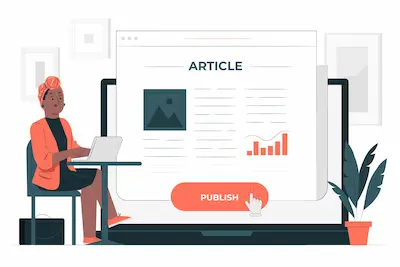
A Non-Techie's Guide
What Are Website Cookies?
Hey there! Have you ever wondered how websites remember who you are, what’s in your shopping cart, or your preferences without asking you over and over again? Well, the secret ingredient is cookies! Not the chocolate chip kind (unfortunately), but they’re just as sweet for your online experience. Let’s dive into the world of website cookies and discover why they’re not just important but absolutely essential for your business.
The Magic Behind the Scenes
Imagine walking into your favorite coffee shop, and the barista knows your order by heart. That’s exactly what website cookies do for your online experience. Cookies are small text files that websites send to your device. They’re like tiny digital assistants, helping the website remember information about your visit. So, next time you visit, the site can recall your preferences, making your browsing smoother and more personalized.
Why Cookies Are a Big Deal for Your Business
- Personalized User Experience: Cookies allow you to tailor the user experience on your website. By remembering visitor preferences and actions, you can create a website that feels like it’s designed just for them. Imagine a user visiting your online store for the second time and finding their cart just as they left it. That’s convenience at its best, and it significantly boosts the chances of conversion.
- Insightful Analytics: Cookies provide vital data about how visitors interact with your site. This information is gold for businesses. You can see what’s working, what’s not, and how you can improve. Understanding your audience’s behavior leads to better decision-making and, ultimately, a more successful website.
- Targeted Marketing: Ever noticed ads that seem to read your mind? That’s cookies in action. They help businesses show the most relevant ads to users based on their browsing history. This makes your marketing efforts more efficient, increasing the likelihood of reaching your ideal customer.
- Seamless Shopping Experiences: For e-commerce sites, cookies are the backbone of the shopping cart functionality. They remember what users have added to their carts, making online shopping a breeze. Without cookies, the online shopping experience would feel disjointed and frustrating.
But Wait, Is There a Catch?
You might be thinking, “This sounds great, but is there a downside?” Privacy is a big conversation when it comes to cookies. It’s crucial to use them responsibly and transparently. Let your visitors know that you’re using cookies, what for, and give them control over their data. This builds trust, and in today’s digital age, trust is everything.
Making Cookies Work for Your Business
Here’s the deal: cookies can make or break the online experience. But how do you make sure they’re working for you and not against you? First, ensure your website is equipped with a clear and compliant cookie policy. Next, analyze the data you collect to continuously improve your website. Lastly, keep the user experience at the forefront of your mind. The more seamless and personalized you can make your site, the better.
Now that we’ve unpacked the mystery of website cookies, it’s clear they play a crucial role in creating engaging, efficient, and personalized online experiences. They’re not just important for your business; they’re indispensable.
Feeling curious about how to elevate your website’s performance further? Why not take a moment to explore our services page? Discover how we can work together to make your website not just functional, but phenomenal. Let’s turn those digital challenges into opportunities and pave the way for your business's success.
Remember, in the digital world, your website is your storefront, and with the right tools and strategies, you can make it a place that customers love to visit, again and again. Let's make that journey together, shall we?
Happy browsing!
Frequently Asked Questions (FAQs)
-
What exactly are cookies, and are they safe?
Cookies are small text files stored on your device when you visit a website. They're used to remember your actions and preferences over time. Generally, cookies are safe as they cannot execute code or deliver viruses. However, it's important for websites to use them responsibly, prioritizing user privacy and security.
-
How can I manage or delete cookies?
You can manage or delete cookies through your web browser settings. Most browsers allow you to view, manage, delete, and block cookies for all sites or specific ones. Check your browser’s help section or privacy settings to adjust your cookie preferences.
-
Do all websites use cookies?
While not all websites use cookies, most do to improve user experience, track analytics, and serve targeted advertisements. Websites are required to inform users about their cookie use, especially in regions with strict privacy laws like the European Union
-
Can cookies track my personal information?
Cookies themselves don’t collect personal information unless you've provided it through forms or similar website interactions. However, they can store identifiers that relate to your browsing behavior. That’s why it’s crucial for websites to disclose their cookie practices and for users to have control over their cookie preferences.
-
Why do some websites ask for my consent to use cookies?
Websites ask for your consent to comply with privacy regulations like the GDPR in the European Union or the CCPA in California. These laws require websites to inform users about their data collection practices, including the use of cookies, and to obtain consent before collecting data through cookies. This ensures transparency and gives you control over your personal information.






